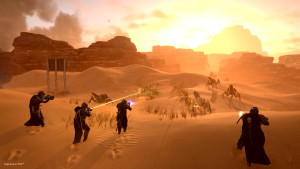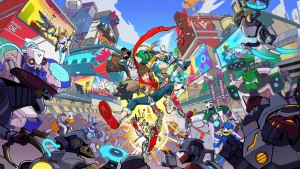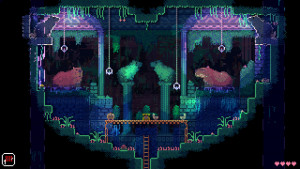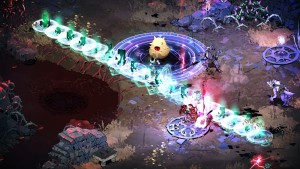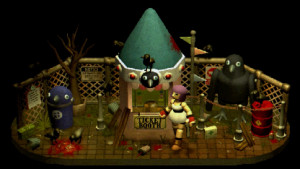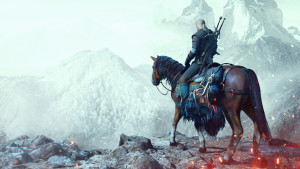Please support Game Informer. Print magazine subscriptions are less than $2 per issue
Paradox's 2010 Strategy Lineup Runs The Gamut
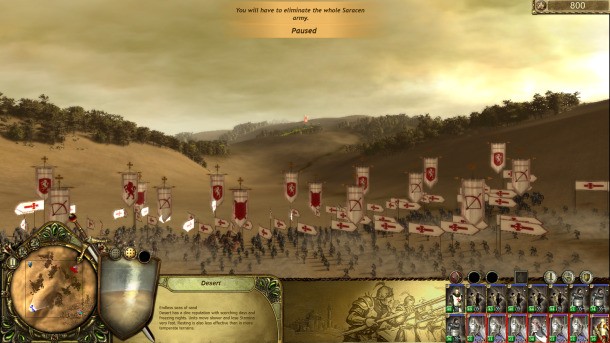
European PC publisher Paradox has its typical stable of PC titles on display at E3 this year. A few of them look interesting for strategy gamers, but if relatively hardcore PC games aren't your bag, this isn't the news post for you.
Lionheart: Kings' Crusade (pictured above) is a mission-to-mission real-time strategy title that explores the Third Crusade during the last decade of the twelfth century. By taking on the role of either Richard the Lionheart or legendary Arabian leader Saladin, players will choose their path through the war-torn era and make decisions on which European factions to appease, but mostly engage in Total War-style RTS battles that put a premium on using realistic military tactics (seizing high ground, using reserves to shore up failing lines, etc.). A simple RPG layer allows you to develop individual units in different directions as well as your leader's abilities, from hiring captains to lead them to paying for further training in advanced tactics. The idea is that you'll have a connection with (and specialized role on the battlefield for) every unit in your army by the end of the game. Lionheart doesn't have a niche to call its own -- it's less ambitious than Total War, more of a game than the hardcore warfare simulators that grew out of old hex-based tabletop wargames, and has production values from five years ago. Even so, if the battles can avoid some of the more egregious mistakes that Total War has been guilty of over the years, this could be a fun tactical diversion for a certain segment of the PC crowd when it comes out September 14.
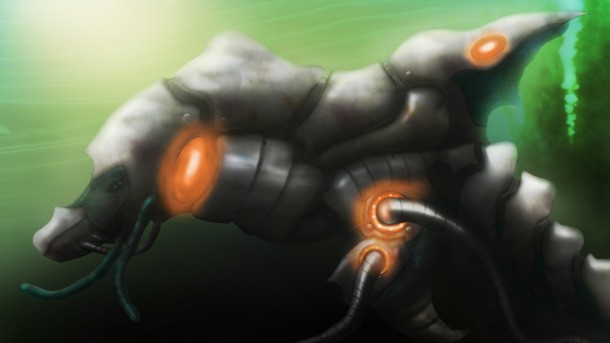
Sword of the Stars II: Lords of Winter is due to bring an updated take on space-based empire building next spring. Developer Kerberos Productions didn't have live gameplay to share on the show floor, but the ideas behind this sequel are excellent. SotS II deals with mature space empires, rather than the frenzy of exploration and colonization from the first game. Planets have expanded development options, ranging from resource-extracting frontier worlds to highly industrialized provincial capitals. Players can set up their empire's political subdivisions, organizing their empire into provinces as they see fit. The tradeoff for the improved infrastructure and reduced governmental overhead in discrete provinces is the creation of a juicy target for your enemies. Losing a frontier world is bad, but allowing a rival empire to raze or occupy a provincial capital is the kind of offense that emperors are deposed over. In addition to the expected iterative improvements like more ship construction options and better graphical shinies, Sword of the Stars II is taking a new approach to space combat. The upgraded astronomical modeling, where planets orbit around stars and space is a dynamic playing field, focuses strategic decisions on force projection and makes players spread out their fleets rather than running around in one big blob. SotS II is scheduled for a spring 2011 release, but we should have a more detailed look at the many improvements to this cult hit sequel well before that.
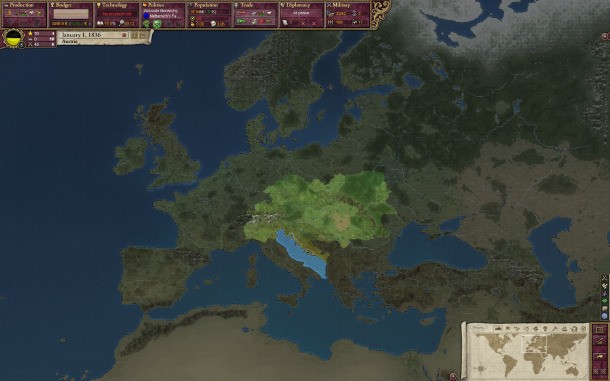
Commander: Conquest of the Americas is a spiritual successor to last year's East India Company. By adding basic empire building and management to EIC's maritime trading-focused economy simulation, developer Nitro Games hopes to get to the next level with Commander. While the core of the game is still managing fleets to move goods and make profits at every stop in their journeys, there are no colonies yet founded in the New World at the game's 16th Century beginning. You and your rivals race to claim the most lucrative resources by building colonies nearby, and will ideally improve those settlements over the course of the game with the capacity to refine those raw materials into more valuable processed goods. Success awaits commanders who can balance the demands of their royal, trade, military, and religious advisors while growing their holdings and making money the whole time -- or who can send their rivals to the bottom of the sea in the real-time naval combat.

Victoria II is the next title by Paradox's in-house development team, and shares many similarities with their other franchises (Hearts of Iron, Europa Universalis), but focuses on the economic and political realms rather than the imperial or military spheres. This super-hardcore geopolitics simulator lets you take control of any country in the world during the Victorian era, where Britain's proud navy ruled the seas and the emergence of new markets in Asia, Africa, the Pacific islands, and the Americas radically changed the structure of global power as the rise of liberalism shook Western culture to its roots. By managing everything from tax rates to political party platforms and infrastructure investment, Victoria II aims to be the total country simulation. Be warned: As cool as Paradox's meticulous attention to detail is, Victoria II makes no more concessions to newbies than any of the developer's other titles. I respect what they do over there, but if this isn't the most impenetrable title I see at E3 this year, I'll be surprised. Victoria II launches on August 10.


